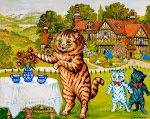
Music has the ability to meddle with our mood. The evolution of music itself is to express the emotions, which the concrete verbal words fail to deliver. If, almost apt words of emotions join hand with perfect mood-reflecting music, they both travel deep into our brain and take control of the emotion programming softwares.
Such a dangerous thing happened in 1933, at Budapest, Hungary. Rezso Seress, a talented musician somewhat gloomy about his eloping success and his friend Laszlo Javor, who had recently broken up with his girl friend, teamed up to produce the saddest song of the century. Both their anguish merged and vibrated in each words and the vocal cords that sung the song trembled in despair and soon the sadness of the song become infectious and the suicides become an epidemic. They named the song 'gloomy Sunday'.
As malicious H1N1 becomes rampant in a damp climate, the depressive pre-world war climate accentuated the spread of the anguish of the song. Most suiciders dedicated with passion, the act of suicide to the song, in their last note. The stories regarding the people commiting suicide with clutching the musical notes of the song were spreading across the world and the song formed its own urban legend. According to legends, one man drunk in a bar in Budapest, requested the local band to play the 'gloomy Sunday'. Immediately after the end of the song, he ran out of the bar and shot himself. And another boy, who heard the song sung by a street beggar, after he finished the song, he gave all the money he had to him and shortly afterwards he flung himself into the river nearby.
when the famous Billy Holiday ( the lady in the photo above singing the 'gloomy Sunday') sung the English version of the song, the epidemic blew out of proportion to a pandemic. Soon it became one of the few famous notorious songs banned by BBC radio. And the legend says, in London a policeman became suspicious when the song was been played again and again in a nearby apartment. When he broke into the apartment, he found out a woman dead with overdose of sleeping pills and by the side of her an automatic phonograph was playing the song again and again, after this incident the BBC banned even the instrumental of that song which it had played.
Although he got great fame from his song 'gloomy Sunday', the life of Rezso Seress was followed by a string of sorrows. All other song composed by him afterwards, only got little attention. Then he became one of those unfortunates seized by the horror of the Holocaust. He lost his mother in the Holocaust. And the composer of the suicide song, committed suicide himself, in a 'gloomy Thursday' morning, in January 1968, by jumping out of the window of his apartment.

.jpg)
Hai Karthi! What about the many suicides that followed the Andhra's CM YSR's death? Does it come in the same category?
ReplyDeleteactually i dont think that all suicides followed the Adhra's CM YSR's death related to YSR's death...........may be due to different different reasons........but counted .........thats politics.......
ReplyDeleteits thrilling to see that a music could touch a heart so much and could lead to killing thyself !!! having seen the movie, its great to read its real story... do keep posting such interesting stuffs....!
ReplyDeletewen are we going to hear such skilled musical notes ( i mean , in general not melancholic)...i think tamils are just contended with "nakka mukka"...!
hi Ezhil ... Andhra has a high suicide rates for the past three to four years and Y.S.R himself stated the sorry affair about the raise of suicide rates, especially among farmers... so my opinion is same as that of the anonymous.
ReplyDeleteya Jahz... the music could be suicidal and at the same time good music could be a soul-healer. Its advised to hear a peppy songs when you are depressed and sad songs when you are elated... that may help in attaining the much needed equilibrium of the mind.
ReplyDelete